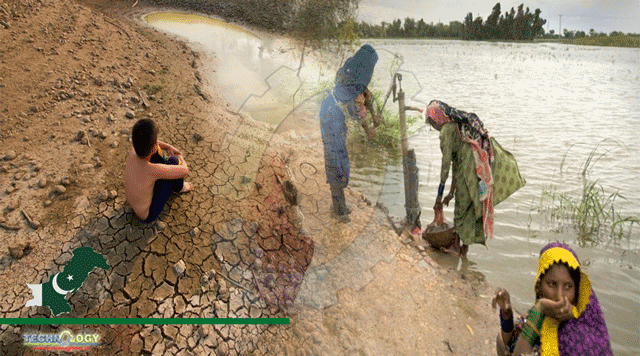Environmental experts, lawyers, journalists and civil society activists at a consultation on Friday called upon the provincial government to make the Sindh Climate Change Policy people-centric.

Environmental experts, lawyers, journalists and civil society activists at a consultation on Friday called upon the provincial government to make the Sindh Climate Change Policy people-centric and include an effective implementation mechanism for mitigating the environment challenges for people in both the rural and urban areas of the province.
Sindh is a fossil gas-rich region, which contributes about 70% of the total gas production in the country. However, gas production, coupled with expansion in LNG plants are deepening Sindh’s exposure to climate change risks as the natural gas, particularly LNG, is also linked with high methane emission potential.
The Knowledge Forum had organised the consultation on the Sindh Climate Change Policy in collaboration with the National Commission for Human Rights at the latter’s Karachi office. NCHR’s Sindh member Anis Haroon presided over the meeting attended by trade unionist Habibuddin Junaidi, Sindh Environmental Protection Agency Director Waqar Hussain Phulpoto, urban planner M. Toheed, Energy Additional Secretary Dr Abdul Shakoor Abro, Aurat Foundation’s Mahnaz Rahman, Sindh Human Rights Commission’s Zulfiqar Shah, Sarah Zaman, Pushpa Kumari, Zahid Farooq, Altaf Hussain Khoso and others.
The participants pointed out various missing elements in the policy. They particularly emphasised that the policy did not recognise concretisation and carbon emission-intensive energy generation such as coal and gas as problem areas. The ongoing expansion of coal power plants in Tharparkar was likely to lead Pakistan into becoming one of the largest air pollutant in South Asia, they said.
The activists also pointed out that there was no mention in the policy how the heatwave impact would be mitigated in urban areas and what the role of District Disaster Management Authorities would be.
They also deplored the recent increase in the taxes on the import of solar panels and said that the government’s measure would discourage the alternative energy sources. They said the impact of climate change was documented to be more severe in Sindh compared to other parts of the country. The policy also notes that mean daily temperatures in Sindh were projected to increase by about 5°C during the 21st century.
Explaining the main points of the Sindh Climate Change Policy, Zeenia Shaukat from The Knowledge Forum said the civil society’s input, particularly from the approach of community protection, and identification of technical gaps hindering the community agenda was crucial to ensuring that the policy was representative and responsive to the impact of climate change experienced by common citizens.
The Sepa director explained how the policy was drafted. He pointed out that the policy was made in consultation with all the stakeholders and consultations were held in this regard with the academia of leading universities of the province.
Anis said that politically influential people were responsible for environmental degradation. She particularly mentioned the case of the killing of Nazim Jokhio who was fighting against the illegal hunting of houbara bustard, a migratory bird protected under various international nature conservation treaties and also under local wildlife protection laws.
This news was originally published by The News.